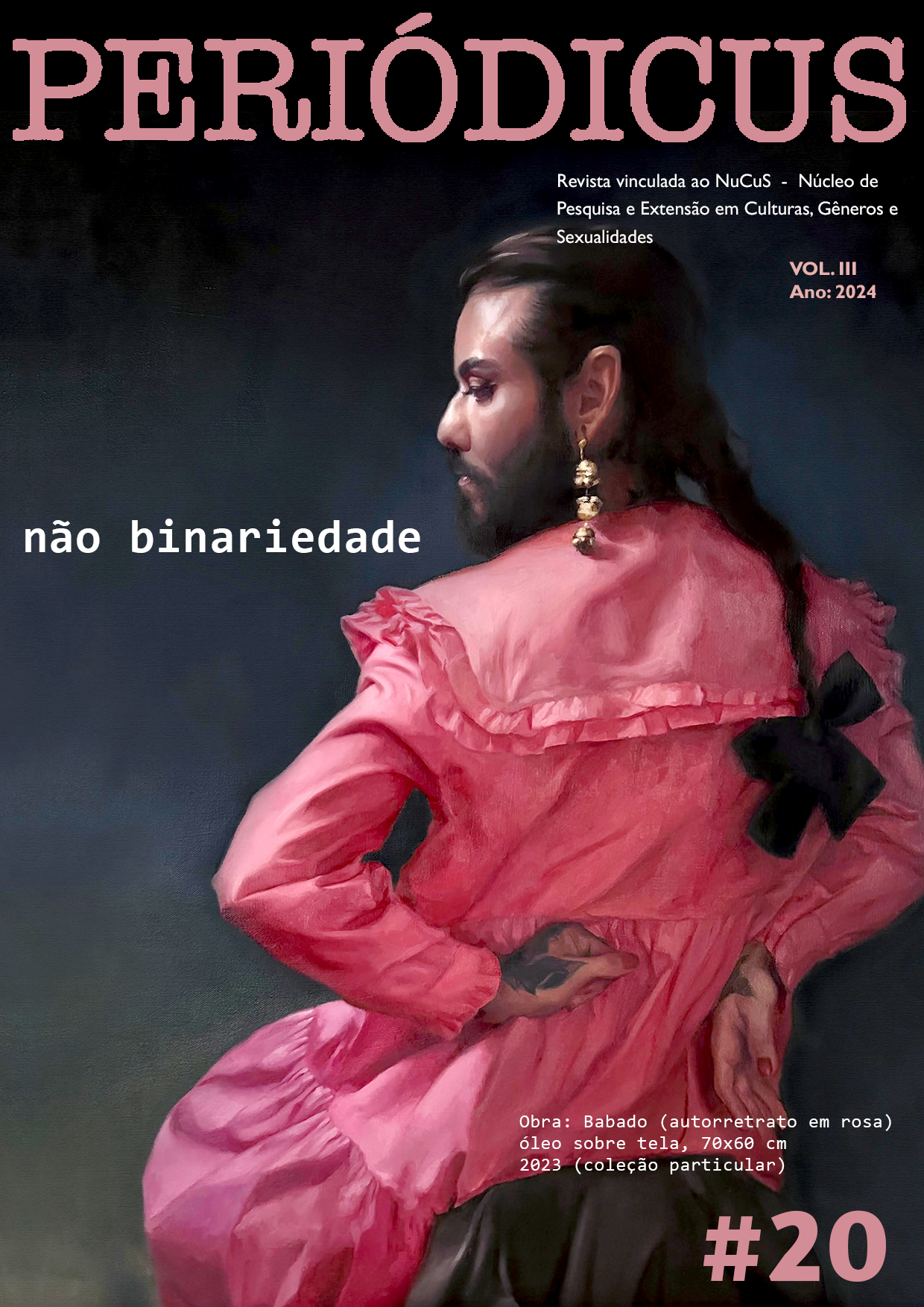Identidade, memória e colonialidade de gênero no conto “Tílburi de praça”, de Raul Pompéia
DOI:
https://doi.org/10.9771/peri.v3i20.57001Resumo
Um clássico do modernismo brasileiro, “Tílburi de praça”, de Raul Pompéia, apresenta elementos que evidenciam a colonialidade de gênero que é estruturante na sociedade brasileira, no que tange à universalização da identidade de mulher aos moldes patriarcais, e também traços que permitem a desconstrução desta. A proposta deste escrito é elucidar a respeito das características que articulam o narrador-personagem aos eixos da identidade e da memória, a fim de observar como este constrói, a partir de sua cosmovisão, os demais personagens ao longo do conto. O aporte teórico-metodológico para a análise tem como base os escritos de Ricoeur (1994), Costa (1992), Maingueneau (2006; 2008), Reis (1995), Santos (2011), Lugones (2014) e Engels (1884).
Downloads
Downloads
Publicado
Como Citar
Edição
Seção
Licença
Copyright (c) 2024 Caroline Willig

Este trabalho está licenciado sob uma licença Creative Commons Attribution-NonCommercial 4.0 International License.
Autores que publicam nesta revista concordam com os seguintes termos:
Autores mantêm os direitos autorais e concedem à revista o direito de primeira publicação, com o trabalho simultaneamente licenciado sob Licença Creative Commons Attribution Noncommercial que permite o compartilhamento do trabalho com reconhecimento da autoria e publicação inicial nesta revista, sendo vedado o uso com fins comerciais.
Autores têm autorização para assumir contratos adicionais separadamente, para distribuição não-exclusiva da versão do trabalho publicada nesta revista (ex.: publicar em repositório institucional ou como capítulo de livro), com reconhecimento de autoria e publicação inicial nesta revista.
Autores têm permissão e são estimulados a publicar e distribuir seu trabalho online (ex.: em repositórios institucionais ou na sua página pessoal) a qualquer ponto antes ou durante o processo editorial, já que isso pode gerar alterações produtivas, bem como aumentar o impacto e a citação do trabalho publicado (Veja O Efeito do Acesso Livre).








